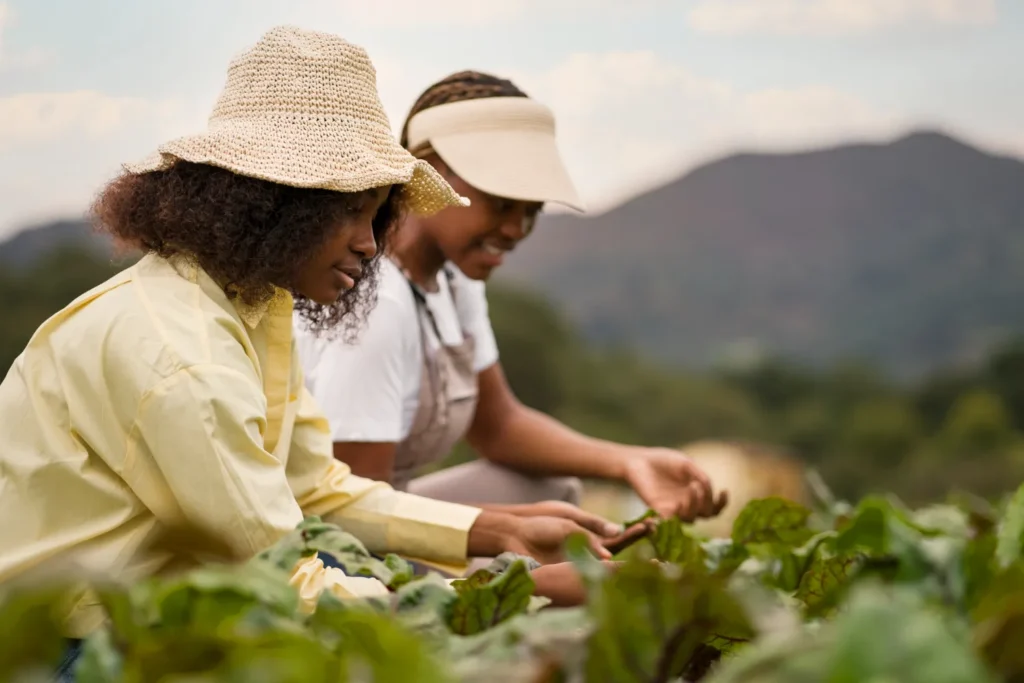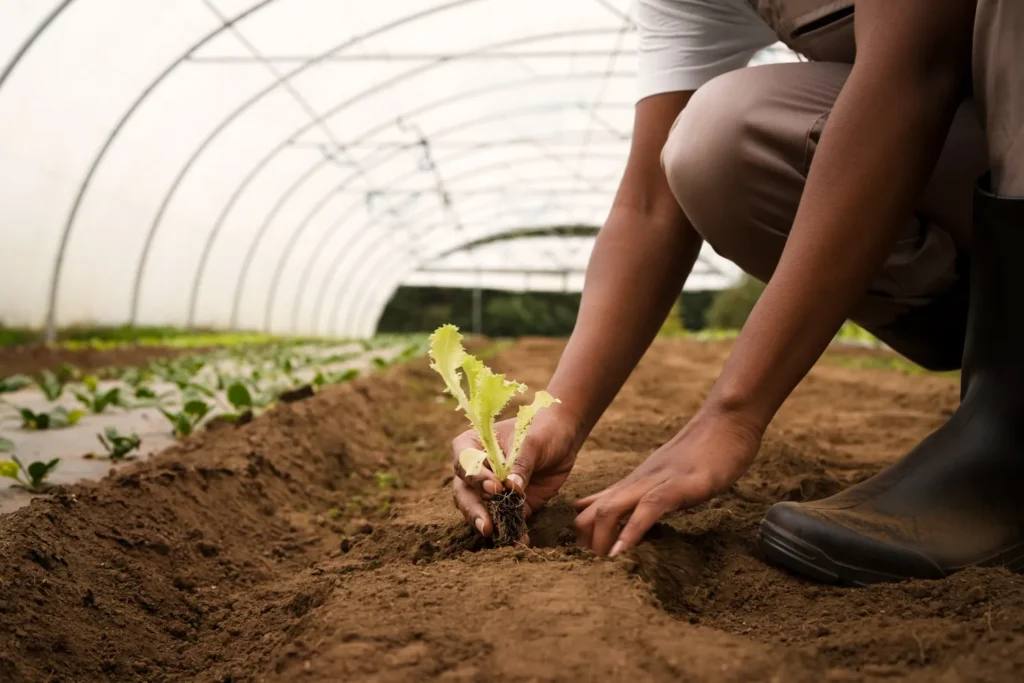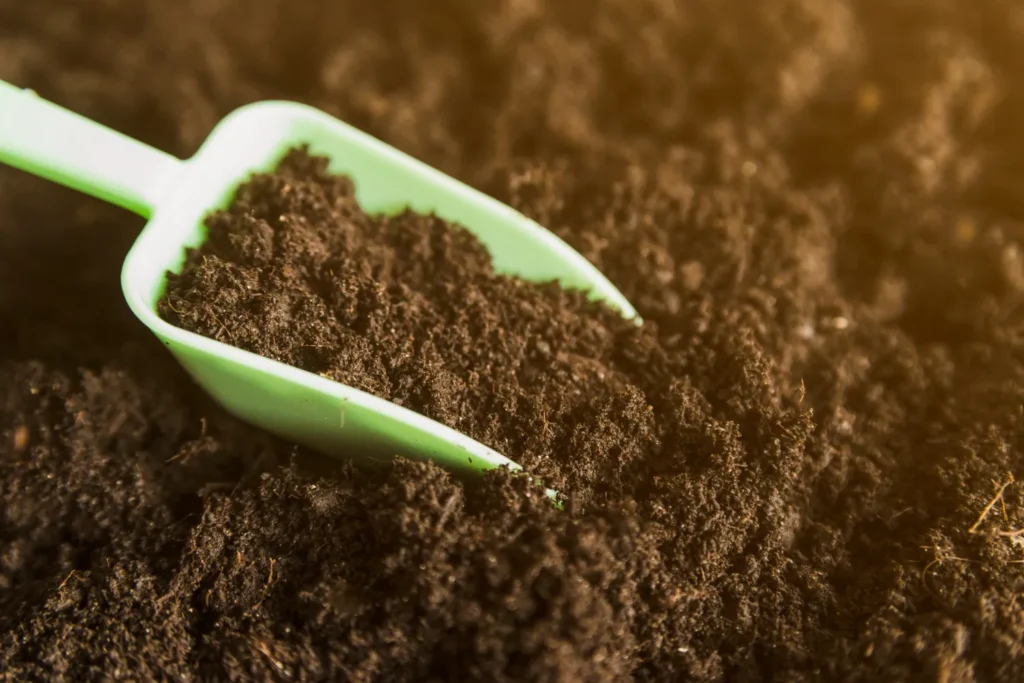Uncategorized
How to Transition from Chemical to Organic Farming Successfully
Switching from conventional, chemical-intensive farming to organic farming is a rewarding move for your land and for future generations. However, the transition requires careful planning, learning, and patience. Here are key steps to help you successfully transition from using synthetic fertilizers and pesticides to embracing organic farming practices: Transitioning to organic farming is a journey that can transform your farm for the better. You’ll be building a more sustainable operation with healthier soil, lower input costs, and products that consumers increasingly value. The process may have challenges, but the long-term rewards – for your profitability, your family’s health, and the environment – are well worth it. Ecoagristyle is here to support you every step of the way. We offer high-quality organic inputs like ECOAGRI-1 and OMB-2, as well as expert advice to guide you through the transition. Feel free to reach out to us for personalized guidance as you make the switch to organic farming. Your success in sustainable agriculture is our goal, too!
How to Transition from Chemical to Organic Farming Successfully Read More »
Sustainable Farming Practices for Higher Yields
Sustainable farming practices not only protect the environment – they can also lead to higher or more stable yields over time. By caring for soil health, conserving resources, and working with natural ecosystems, farmers often find their crops grow more robustly. In fact, long-term studies have found that organic and sustainable farms can match the yields of conventional farms for major crops like corn and soy, while using fewer synthetic inputs news.cornell.edu . This means you don’t have to sacrifice productivity to farm in an eco-friendly way. Key sustainable practices that boost yields include maintaining soil fertility, diversifying crops, and controlling pests naturally. Crop rotation is a foundational practice: by rotating different crops (for example, planting nitrogen-fixing legumes like beans after a heavy feeder like maize), farmers can naturally replenish soil nutrients and break pest/disease cycles. Healthy soil grows healthier plants, which are more productive. Using organic fertilizers and compost helps build that soil fertility, leading to stronger plant growth and better yields. Integrated Pest Management (IPM) – using beneficial insects, biological controls, and smart crop rotations – keeps pest damage low without relying solely on chemicals, so crops can flourish. Additionally, conserving soil moisture through methods like mulching or reduced tillage ensures that plants have water when they need it, which can significantly improve yield consistency. Studies also show tangible yield gains from sustainable methods. For example, a long-term trial in China found that incorporating organic fertilizer into a conventional system increased wheat yields by up to 40% compared to using chemical fertilizer alone frontiersin.org . The boost came from improved soil structure and nutrient availability. Similarly, practices like agroforestry (integrating trees or shrubs with crops), cover cropping, and precision water management can all enhance productivity per hectare by improving the growing conditions for crops. Examples of sustainable farming practices for higher yields: By adopting these practices, farmers build a more resilient farming system. You may notice your yields becoming more consistent year to year, with fewer extreme highs and lows. Moreover, the cost savings on chemical inputs and the long-term improvements in soil make your farm more profitable over time wbcsd.org file-8evft8vy5eedxcytvzepim . Sustainable farming is about working smarter: using nature’s own mechanisms to enhance crop production. Even starting with one or two practices – like rotating crops or using an organic fertilizer – can set you on the path to higher, sustainable yields. Ecoagristyle is here to support farmers in this journey, with proven organic inputs and expert guidance to help you farm sustainably without sacrificing productivity.
Sustainable Farming Practices for Higher Yields Read More »
The Benefits of Organic Fertilizers for Soil Health
Improving soil health is one of the most important investments a farmer can make. Organic fertilizers play a key role in this by feeding the soil, not just the plant. Unlike synthetic fertilizers that provide rapid nutrients but can degrade soil over time, organic fertilizers add valuable organic matter and microorganisms to the soil. This leads to richer, more fertile soil that supports healthy plant growth season after season. Organic fertilizers greatly enhance soil structure, fertility, and biological activity. They add organic matter, which improves soil texture, increases water-holding capacity, and promotes nutrient cycling canr.msu.edu . They also nurture soil life – beneficial microbes that help break down nutrients and even boost plants’ resistance to stressors like drought delawarecurrents.org . Over time, using organic inputs builds up the soil’s organic carbon and nutrient reservoirs, creating a self-sustaining fertile environment for crops frontiersin.org . Key benefits of organic fertilizers for soil health include: In summary, organic fertilizers improve the foundation of your farm – the soil. Healthier soil translates to healthier plants, more resilient fields, and better yields in the long run. At Ecoagristyle, we have seen these benefits first-hand through our products like ECOAGRI-1, which helps farmers rebuild soil fertility naturally. By investing in your soil’s health with organic inputs today, you’re ensuring productive, sustainable farms for years to come.
The Benefits of Organic Fertilizers for Soil Health Read More »



